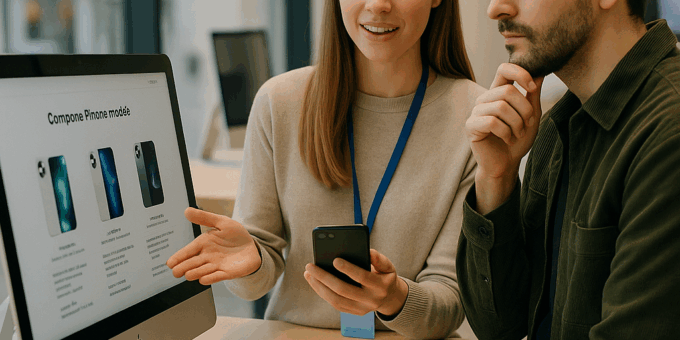
In today’s digital-first world, keeping your devices safe from prying eyes is no longer a choice—it’s a necessity. With cyberattacks becoming more sophisticated, your PC and iPhone are at constant risk from malware, phishing scams, ransomware, and even physical theft. Whether you’re a remote worker, student, parent, or entrepreneur, understanding cybersecurity for PCs and iPhones can make the difference between peace of mind and digital chaos.
What Is Cybersecurity?
Cybersecurity refers to the practices, technologies, and processes used to protect computers, mobile devices, and networks from digital threats. It involves layers of protection, from antivirus software to user behaviors like cautious clicking. Whether you’re checking email or streaming your favorite show, cyber hygiene plays a crucial role in safeguarding sensitive data.
Imagine your devices as your digital homes. Just like you lock your front door, cybersecurity locks your data, apps, and systems. But unlike traditional locks, these ones need constant updating and awareness to stay effective.
Importance of Cybersecurity for PCs and iPhones
Why are both PCs and iPhones frequent targets? Simple: They hold a goldmine of personal information. From saved passwords and contact lists to banking apps and social media, these devices are prime real estate for cybercriminals.
PCs, especially those running outdated Windows systems, are often more vulnerable due to open architecture and third-party software. iPhones, while generally more secure thanks to Apple’s closed ecosystem, aren’t immune. Malware can sneak in via apps, phishing links, or compromised networks.
Both devices are entry points to your digital life—compromise one, and everything else may follow.
Understanding Common Cyber Threats
Before you can defend against threats, you need to know what they look like:
-
Malware: Harmful software that steals or damages data.
-
Phishing: Deceptive messages tricking users into revealing personal info.
-
Ransomware: Malware that encrypts your files until a ransom is paid.
-
Spyware: Secretly monitors user activity.
-
Keyloggers: Records everything you type, including passwords.
While some threats are obvious, others work in the shadows. Recognizing these dangers early is your first line of defense.
Social Engineering and Phishing Scams
Social engineering is psychological manipulation at its worst. It exploits trust, fear, or urgency to trick users. One classic example? An email that seems to come from your bank, warning of “suspicious activity” and prompting a quick login—which, of course, sends your credentials straight to the hacker.
Phishing attacks have evolved. Now they include smishing (SMS phishing), vishing (voice phishing), and even fake websites that look identical to real ones. Always think twice before clicking on unsolicited links.
Key Differences in PC vs iPhone Cybersecurity
-
PCs: Open systems allow for more customization but increase risk. Users often download software from various sources, which might carry malware.
-
iPhones: Use sandboxing, which restricts apps from accessing each other’s data. However, jailbroken iPhones lose this layer of protection.
Understanding your device’s strengths and limitations is crucial for proper defense.
Best Antivirus Software for PCs
Protecting your PC starts with solid antivirus software. Top choices include:
| Antivirus | Features | Price Range |
|---|---|---|
| Bitdefender | Real-time protection, anti-phishing | $39.99/year |
| Norton 360 | VPN, password manager, dark web monitoring | $49.99/year |
| McAfee | Multi-device coverage, firewall, identity theft protection | $39.99/year |
These programs offer more than virus scanning—they’re comprehensive security suites that monitor your system in real time.
You Can Also Read : Top Cybersecurity Tips for PC and iPhone Users in 2025
iPhone Security: Built-In Protections Explained
iPhones come with several built-in safety nets:
-
Face ID & Touch ID: Biometric logins protect against unauthorized access.
-
Find My iPhone: Helps locate lost devices or wipe them remotely.
-
App Store Restrictions: Apple reviews all apps for malware.
-
iCloud Encryption: Your backups are secure and encrypted.
While these features help, they’re not foolproof—users must still remain vigilant.